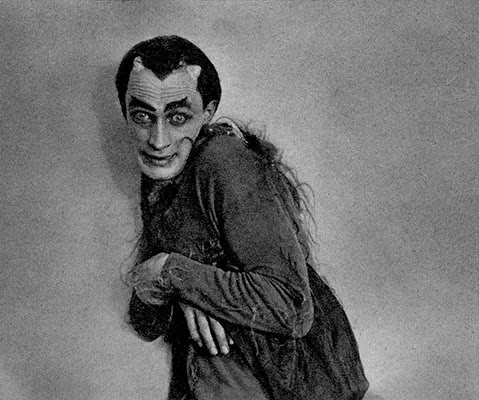Advertisements
Conrad Veidt Net Worth. Hans Walter Conrad Veidt was a German actor best known for his roles in the films Different from the Others, Dr. Caligari’s Cabinet, and The Man Who Laughs. Conrad Veidt’s Net Worth is estimated to be approximately $8 Million.
Parts of This Content:
Conrad Veidt Net worth and profile in one glance
| Name | Hans Walter Conrad Veidt |
| Born | January 22, 1893 |
| Died | April 3, 1943, Hollywood, Los Angeles, California, United States |
| Height | 1.89 m |
| Country of Origin | Berlin, Germany |
| Occupation | Actor |
| Spouse | Ilona Prager (m. 1933–1943), Felicitas Radke (m. 1923–1932), Gussy Holl (m. 1918–1922) |
| Children | Vera Viola Maria Veidt |
| Conrad Veidt Net worth | Conrad Veidt Net worth $8 Million |
Biography of Conrad Veidt

Early life
Hans Walter Conrad Veidt was born on January 22, 1893, in the home of his parents, Amalie Marie and Philipp Heinrich Veidt, a former military soldier turned civil servant, at Tieckstraße 39 in Berlin.
Advertisements
Veidt was baptized on March 26, 1893, by his Lutheran family. On 5 March 1908, he was confirmed in a ceremony at the Protestant Evangelical Church in Alt-Schöneberg, Berlin.

Veidt’s sole sibling, an elder brother named Karl, died of scarlet fever when he was nine years old in 1900. Summers were spent in Potsdam for the family.
Advertisements
Stepping stone into Conrad Veidt Net Worth (Career)
Veidt appeared in almost 100 films between 1917 and his death. One of his early roles was as the deadly somnambulist Cesare in director Robert Wiene’s famous German Expressionist film The Cabinet of Dr. Caligari (1920), co-starring Werner Krauss and Lil Dagover.

His prominent performance as a disfigured circus artist whose face is carved into a permanent grin in The Man Who Laughs (1928) supplied the (visual) inspiration for the Batman adversary the Joker.
Advertisements
Other silent horror films in which Veidt appeared include Robert Wiene’s The Hands of Orlac (1924), The Student of Prague (1926), and Waxworks (1924), in which he played Ivan the Terrible.

Veidt also participated in Magnus Hirschfeld’s 1919 film Anders als die Andern, one of the first films to sympathetically show homosexuality, despite the fact that the characters in it do not finish happily. In Germany’s first talking picture, Das Land Ohne Frauen played a significant role.
Emigration

Veidt was a staunch Nazi opponent who eventually gave a large chunk of his own fortune to the British war effort. By March 1933, just a week after the Nazi Party won power in Germany, Joseph Goebbels was purging the film industry of anti-Nazi sympathizers and Jews, and Veidt and Ilona Prager, a Jewish lady, left to Britain before any action could be done against either of them.
Advertisements
Primary source of Conrad Veidt Net worth (Acting)

Following his arrival in the United Kingdom, Veidt improved his English and acted in the anti-Nazi films The Wandering Jew (1933) and Jew Süss (1934), the latter directed by exiled German-born director Lothar Mendes and produced by Michael Balcon for Gaumont-British.
On February 25, 1939, he became a British subject. Veidt, who was now multilingual, acted in films in both French and English, including three of his most well-known parts for British director Michael Powell in The Spy in Black (1939), Contraband (1940), and The Thief of Bagdad (1940).

Later career in the US
He appeared in a few films, including George Cukor’s A Woman’s Face (1941), in which he had a dual role as both an aristocratic German Nazi spy and the man’s twin brother, an anti-Nazi American, and Nazi Agent (1942), in which he had a dual role as both an aristocratic German Nazi spy and the man’s twin brother, an anti-Nazi American.
His most well-known Hollywood performance was as the evil Major Heinrich Strasser in Casablanca (1942), a picture that began pre-production before the US entered WWII.

Personal life
Sports, gardening, swimming, golfing, classical music, and reading fiction and nonfiction were among Veidt’s favorite pastimes. Including occultism; Veidt once considered himself a powerful medium. He was terrified of heights and flying, and he despised interviews and ties.
Death

Veidt realized in the 1930s that he had the same cardiac problem as his mother, which had caused her death. Veidt was prescribed nitroglycerin tablets as his condition became worsened by chain-smoking.
On 3 April 1943, while playing golf at the Riviera Country Club in Los Angeles with singer Arthur Fields and his personal physician, Dr. Bergman, who pronounced him dead at the scene, Veidt died of a major heart attack.

After reaching the eighth hole, he suddenly gulped and collapsed. He was 50 years old at the time. His ex-wife Felicitas and daughter Viola learned about his death through a Swiss radio program.
His ashes, along with those of his wife Lilli, were interred in a columbarium niche at the Golders Green Crematorium in north London in 1998.
Conclusion
Advertisements
Conrad Veidt is a well-known and brilliant actor from the Hollywood film business. The Conrad Veidt Net Worth is a source of motivation and inspiration. Also, check out – Scott Adkins Net Worth.
Advertisements




